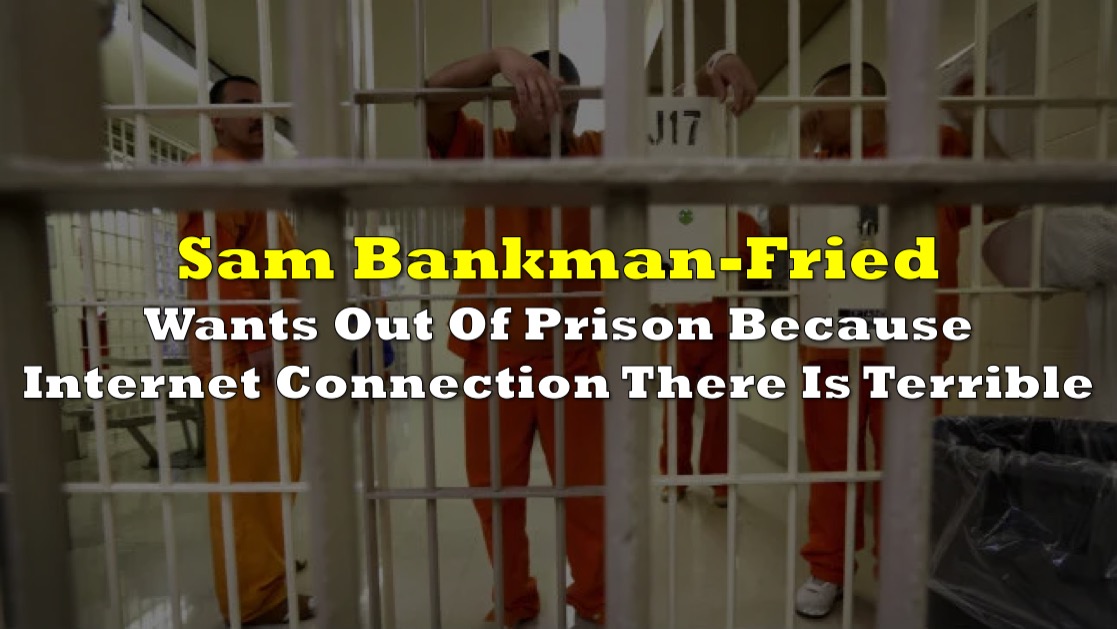‘Meta-Content’ Is Taking Over the Internet

My longest parasocial romance, with a well known natural beauty influencer named Jenn Im, is going 8 several years strong. I found out her in a vlog titled “Meet My Boyfriend” and have, together with far more than 3 million other subscribers, held up with what she eats in a day and her monthly magnificence favorites ever given that. Her video clips have become a salve for my brain, making it possible for me to chill out by watching anyone else’s successful, aesthetic lifetime.
Jenn, on the other hand, has intricate things by introducing an unforeseen matter to her repertoire: the risks of social media. She just lately spoke about disengaging from it for her effectively-staying she also posted an Instagram Story about the dangers of ChatGPT and, in none other than a YouTube video, suggested Neil Postman’s Amusing Ourselves to Death, a seminal piece of media critique from 1985 that denounces television’s reduction of lifetime to leisure. (Her other reserve tips integrated Stolen Focus, by Johann Hari, and Recapture the Rapture, by Jamie Wheal.)
Social-media platforms are “preying on your insecurities they’re preying on your temptations,” Jenn defined to me in an interview that shifted our parasocial relationship, at minimum for an hour, to a mere connection. “And, you know, I do participate in a purpose in this.” Jenn makes revenue by aspirational advertising and marketing, immediately after all—a common component of any influencer’s occupation. “This is how I shell out my payments this is how I aid my household,” she stated. “But that is only a compact portion of it.”
I very first discovered Jenn’s social-media critiques in a online video Q&A, where by she discussed parasocial interactions. The video is exceptionally aesthetic. Jenn is dressed to the nines in her California kitchen area, wearing a pair of diamond knocker earrings from 8 Other Reasons she fluidly carries out an Estée Lauder ad in a Parachute robe ahead of the very first two minutes are in excess of. She’s pro–parasocial associations, she explains to the camera, but only if we keep on being knowledgeable that we’re in just one. “This marriage does not switch current friendships, present relationships,” she emphasizes. “This is all supplementary. Like, it ought to be in addition to your lifetime, not a substitution.” I sat there watching her chat about parasocial relationships when absorbing the irony of becoming in one with her.
Life style vlogs romanticize the most mundane components of day-to-day existence in a way that can really feel nonsensical to the uninitiated. People history themselves grocery procuring and brushing their teeth, but aesthetically, with comforting history audio and voice-overs of the influencer’s views. Looking at somebody else live their life is easier than residing my possess, and it gives me strategies on how to enhance my existence. But the extra informed I turn out to be of the scaffolding beneath the facade, the extra disoriented I truly feel.
The open acknowledgment of social media’s internal workings, with content creators exposing the foundations of their information within just the articles alone, is what Alice Marwick, an associate communications professor at the College of North Carolina at Chapel Hill, explained to me as “meta-content.” Meta-content material can be overt, such as the vlogger Casey Neistat thinking, in a vlog, if vlogging your lifestyle prevents you from currently being fully current in it Meghan Markle outlining, in a selfie-design and style video clip for the Harry & Meghan docuseries, why she and Prince Harry recorded so several videos amid a household break up or the YouTuber Jackie Aina noting, in a online video about YouTube burnout, that building movies is essentially about obtaining views. But meta-content material can also be refined: a vlogger strolling throughout the frame before functioning back to get the digital camera. Or influencers vlogging themselves modifying the extremely online video you are seeing, in a minute of room-time distortion.
Viewers don’t appear to be to treatment. We preserve seeing, entirely accepting the effectiveness. Most likely which is because the rise of meta-articles promises a way to grasp authenticity by acknowledging artifice specially in a instant when artifice is less complicated to develop than at any time just before, audiences want to know what’s “real” and what is not. As Susan Murray, a media-reports professor at NYU, describes, “The notion of a room where you can rely on no resources, there’s no spot to kind of land, all the things is set into issue, is a pretty unsettling, unsatisfying way to live.” So we carry on to look for for, as Murray observes, the “agreed-on items, our basic understandings of what is serious, what is genuine.” But when the content material we look at will become self-informed and even self-crucial, it raises the concern of whether we can really escape the machinations of social media. Probably when we stare instantly into the abyss, we commence to enjoy its company.
Electronic authenticity—which Marwick mentioned is “culturally constructed” to commence with—has shifted over the a long time. On Tumblr and early Instagram circa 2014, curated perfection was the desired way to exist online—an picture of the back of a girl’s head, for instance, with bouncy ringlets and a robin’s-egg-blue bow. The subsequent several decades introduced the no-makeup selfie and the confessional, very long-type Instagram caption to the fore, indicating a motivation to achieve authenticity through transparency and introspection. Those genres have been inevitably questioned far too: Cultural critics commenced to argue that becoming on-line is normally a effectiveness and hence inherently a fabrication. In her 2019 e-book, Trick Mirror, Jia Tolentino described how on the internet spaces, as opposed to bodily kinds, deficiency a backstage where performance can be suspended. “Online,” she writes, “your audience can hypothetically preserve growing forever, and the performance under no circumstances has to conclusion.” Online cons of this period of time, these kinds of as Fyre Pageant and the Caroline Calloway minute, relied on the social-media presentations of doctored realities. If every thing is faux anyway, why hassle with the fact?
Then came BeReal, a social app that sends consumers once-a-day drive notifications to consider simultaneous entrance- and back again-digital camera pics with out filters or captions. It was positioned as a counter to on line inauthenticity, but as R. E. Hawley wrote, “The variation amongst BeReal and the social-media giants is not the former’s marriage to reality but the size and scale of its deceptions.” BeReal people still angle their digicam and hold out to choose their day-to-day photo at an aesthetic time of day. The snapshots basically remind us how unattainable it is to halt accomplishing on-line.
It can be tricky, in this context, to envision how significantly further more the frontiers of our digital planet can extend. Jenn’s worry more than the long run of the world-wide-web stems, in part, from motherhood. She not too long ago had a son, Lennon (whose to start with birthday bash I watched on YouTube), and problems about the electronic earth he’s going to inherit. Again in the age of MySpace, she experienced her possess web friends and would sneak out to parking plenty at 1 a.m. to meet them in authentic existence: “I assume this was when technologies was seriously utilized as a device to hook up us.” Now, she explained, it’s beginning to ensnare us. Submitting content material on line is no for a longer time a signifies to an close so considerably as the end itself.
I requested Jenn if she ever concerned about talking about the pitfalls of social media, given her placement as an influencer. She informed me that, to the contrary, this is exactly what motivates her: “I can not adjust the globe, but if I can affect my sphere of get to, then I’m heading to try and do that.” But it’s not that basic. Meta-articles reminds us that a efficiency of authenticity is still a functionality. The artifice of the internet stays, even when we fold it in upon alone. It’s easy to think of our online self as just a single of the several variations of us—who we are at do the job is not the exact same as who we are with our parents or friends. But the on the internet version can be edited in means that the many others simply cannot.
Audiences, probable acquainted with putting up on social media on their own, recognize these constructions. There are times the place I appear at the very small digital edition of myself on Instagram that appears to be like and acts like me but continues to be a little bit much too polished—an uncanny valley amongst me and myself. “There’s nonetheless a question and interrogation of what’s real at the foundation, but [audiences are] a lot more ready to accept … distortions or performance” than they were in the past, Murray states.
We employed to watch influencers’ life as aspirational, a fact that we could access toward. Now both equally sides admit that they are portion of a ideal solution that the viewer understands is unattainable and the influencer acknowledges is not totally actual.
A handful of months immediately after our contact, Jenn place up a vlog. I watched a clip of our interview in it, a various angle of our Zoom phone than I had skilled. “As you observed, we just experienced an very extended dialogue about social media, parasocial interactions, and the long term,” she suggests in the clip, later on including, “I forgot to say this to her in the interview, but I genuinely think that my movies are fewer about me and far more of a reflection of the place you are at the moment … You are kind of reflecting on your personal lifestyle and viewing what resonates [with] you, and you are discarding what does not. And I think which is what’s beautiful about it.”
As I viewed a movie of her getting interviewed by me for the report on meta-written content you’re reading through on this extremely web site, I uncovered that this sentiment rang accurate. Looking at Jenn’s wedding day video clip created me significantly consider relationship as a choice I would one working day make looking at and bookmarking her newborn-necessities video clip built me truly feel additional well prepared for the overwhelming job of being pregnant (inspite of obtaining no ideas to undertake it anytime before long).
But meta-written content is essentially a compromise. Recognizing the delusion of the world wide web doesn’t change our course inside of it so considerably as remind us how trapped we truly are—and how we wouldn’t have it any other way.
When you invest in a reserve applying a backlink on this site, we receive a commission. Thank you for supporting The Atlantic.









